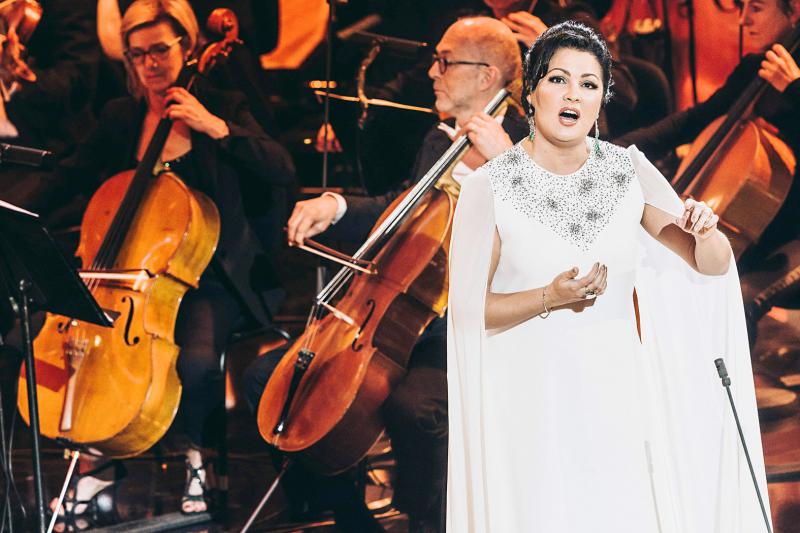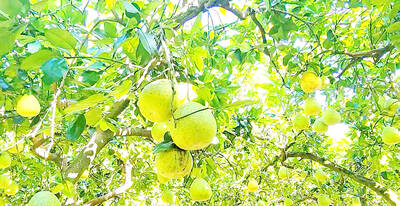As Moscow’s invasion of Ukraine enters its third week, a pall has fallen over Russian artists, long crown jewels of a country whose fine arts are an eminent source of soft power.
Superstar operatic soprano Anna Netrebko and renowned conductor Valery Gergiev are among the luminaries axed from performing on the global stages they have long graced — but do cultural boycotts work?
The freezing out of artists who have espoused pro-Kremlin views — or who receive funding from the Russian state — recalls similar measures taken over apartheid-era South Africa or against Israeli institutions in solidarity with Palestinians as part of the BDS movement.

Photo: AFP
Jane Duncan of the University of Johannesburg, who has studied the power of such boycotts as political change agents, said isolation campaigns based on culture as well as sports can be “highly effective, because they can have a huge psychological impact.”
“Russia over a number of centuries now has prided itself on its intellectual, artistic and sporting achievements. It’s become part and parcel of its identity and its projection of soft power globally,” the academic said.
“I think we’ve already seen that there’s a lot of dissent within Russia about the invasion of Ukraine, and a cultural boycott may well intensify that.”

Photo: AFP
Duncan cautioned, however, that a “blanket cultural boycott” could hurt anti-regime artists: in early 1980s South Africa, for example, she said, a form of “double censorship” emerged, where both the apartheid state and “artists who came from the liberation movements” were subject to shunning.
“That led to a situation where you couldn’t actually hear the voices of the oppressed and the exploited expressed through art, through music, through drama, because they weren’t allowed outside of the country.”
Emilia Kabakov, a multidisciplinary Ukrainian artist who has lived and worked with her husband Ilya in New York for decades, warned against punishing creatives — and anyone — simply on the basis of nationality.
“I know that Russian artists right now have problems,” said the 76-year-old born in the Soviet city of Dnipropetrovsk, now known as Dnipro in Ukraine.
But she suggested those Russians who live and work abroad may have a reason, saying: “Did anybody think, why are they here? Because they can’t live there... they want a normal life, unrestricted.”
“You don’t have to work with collaborationists, but you have to work with Russians, and Ukrainians, and everybody else.”
WHERE IS THE LINE?
The stance Kabakov evoked is the approach Duncan deemed appropriate — to “steer clear” of boycotts based purely on nationality that “could lead to a very dark and difficult place.”
The scholar pointed to the BDS (Boycott, Divestment, Sanctions) movement as having a “much more sophisticated position on the cultural boycott” than was the original case in South Africa, promoting a selective rather than blanket ban.
The cultural and academic boycott arm of the BDS movement said in a statement the measures they advocate for are “strictly institutional” and do “not target individuals.”
Leaders of major cultural institutions including New York’s Metropolitan Opera, Paris’ Philharmonic, and other European venues in recent weeks have said the scope of their boycott is focused on artists who back Russian President Vladimir Putin, not everyone with a Russian passport.
“If somebody is a tool of the state, they probably won’t be working with the New York Philharmonic,” the orchestra’s CEO Deborah Borda said.
“There is a line that is very clear,” said French Culture Minister Roselyne Bachelot. “We don’t want to see representatives of Russian institutions or artists who clearly support Vladimir Putin.”
But in cases elsewhere, critics fear that line is blurred: the Polish Opera scrapped its production of Mussorgsky’s 19th century opera Boris Godunov, and the Zagreb Philharmonic cut two Tchaikovsky compositions from a performance.
Dostoevsky began trending after a Milan university tried to postpone a course about the classic Russian novelist behind “Crime and Punishment” — who spent four years in a Siberian labor camp after reading banned books in Tsarist Russia. The university backtracked following the social media uproar.
‘CANCEL CULTURE’
When it comes to contemporary artists’ political responsibility, Duncan said “one can make the argument that producing the art and getting it out there is stance enough.”
“We also want to avoid putting artists on the spot to make political statements when perhaps they don’t feel comfortable with doing that,” she continued. Feeling pressure to speak out on Putin’s war in Ukraine, Russian conductor Tugan Sokhiev left his posts at Moscow’s Bolshoi and with the orchestra of Toulouse.
In a lengthy statement, Sokhiev said he “will always be against any conflicts in any shape or form” but said he felt “forced to face the impossible option of choosing between my beloved Russian and beloved French musicians” — so he quit both.
Saying he and colleagues were “victims” of “cancel culture,” the conductor insisted “we musicians are the ambassadors of peace.”
“Instead of using us and our music to unite nations and people, we are being divided and ostracized,” he said.

Gaotai Mountain (高台山) and the three Daotian Peaks (小中大島田山回來) afford visitors a truly rewarding hike in Hsinchu County (新竹). Located in the foothills just beyond the charming Neiwan Old Street (內灣老街), the hike is well suited for hikers in a fair to good physical condition. It’s also a good introduction to the foothills of northwest Taiwan, along with some more adventurous — but still not terribly dangerous — rope and scrambling sections. As a bonus, there are Japanese ruins, hot springs and river tracing destinations such as Meihua Waterfall (梅花瀑布) and Bilin Waterfall (比麟瀑布) all located nearby. WHISPERING PINES The first section of

Like many young Taiwanese men who recently graduated from university, George Lee (李芳成) isn’t quite sure what he’ll do next. But some of his peers surely envy what he’s already achieved. During the pandemic, while staying with his brother in California, Lee started an online food page, Chez Jorge. At first, it was a straightforward record of what he cooked each day, with many of the dishes containing meat. Lee soon began to experiment with plant-based dishes, specifically vegan versions of Taiwanese dishes he was already familiar with. “Very often, I found myself awed by not only how delicious they were,

With William Lai’s (賴清德) presidential inauguration coming up on May 20, both sides of the Taiwan Strait have been signaling each other, possibly about re-opening lines of communication. For that to happen, there are two ways this could happen, one very difficult to achieve and the other dangerous. During his presidential campaign and since Lai has repeatedly expressed his hope to re-establish communication based on equality and mutual respect, and even said he hoped to meet with Chinese leader Xi Jinping (習近平) over beef noodles and bubble tea. More dramatically, as explored in the May 2 edition of this column,

Tiffany Chang (張芳瑜) is a force to be reckoned with. Crowned Miss Taiwanese American in 2022, she made history last year as the first Taiwanese winner of Miss Asia USA. She’s also a STEM student at Stanford and an aspiring philanthropist — the kind of impressive accolades that has earned her the moniker “light of Taiwan.” At the end of March, Chang returned to Taipei, to “see the people that support me because ultimately that’s what made me win.” She says her Taiwanese supporters shower her with praise: “you inspire us, and you make us feel proud of our Taiwanese heritage,”